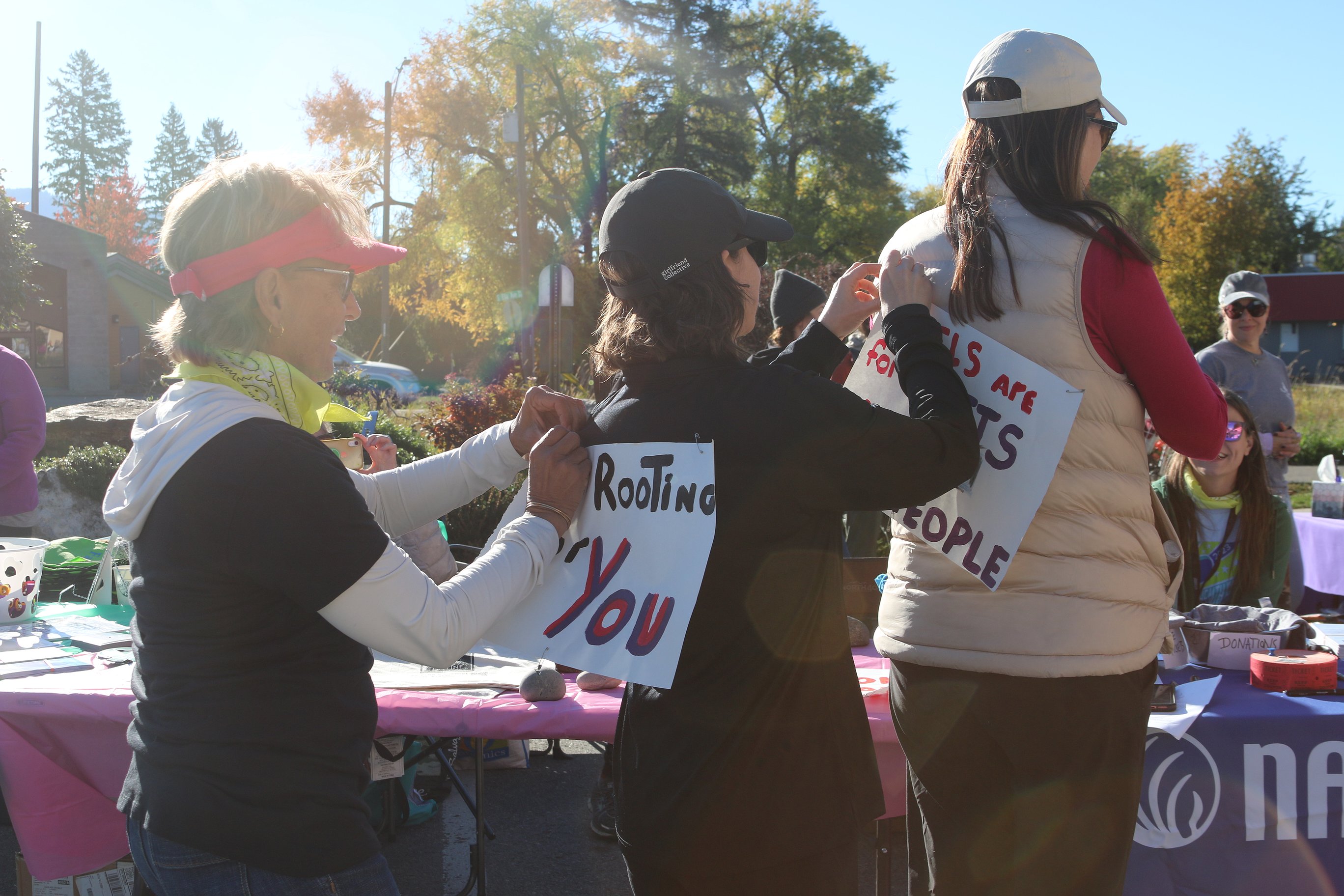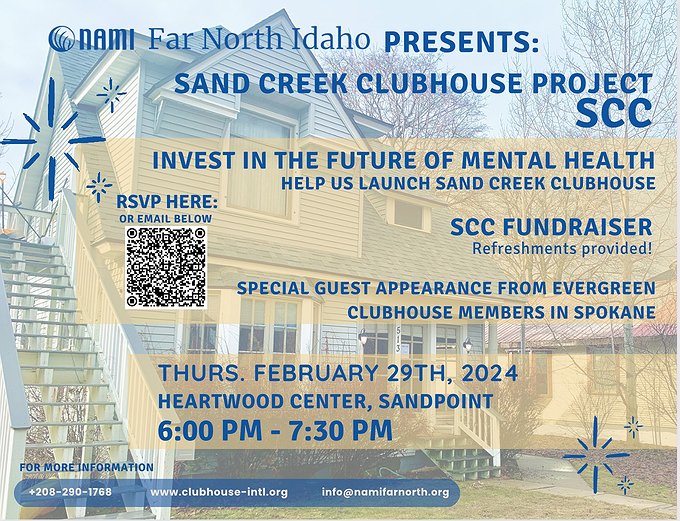NAMI Far North sets sights on new 'Clubhouse'
SANDPOINT — She was sick and tired of being, well, sick and tired.
Before she experienced a serious mental illness, she was a wife, a mother of four children, and had a job she loved.
"Everything was going great: my faith, family, career … until it wasn’t," said Donnamarie, a pseudonym used in the member testimonial shared by Clubhouse International. "… So, I just kept pushing through until I couldn't, and my thoughts betrayed me."
She made three attempts to die by suicide, ending up in the emergency department each time. It was during that third stay at a local hospital that she was handed a tiny slip of paper with a number on it.
The number was for a chapter of Clubhouse International, a recovery-based mental health organization.
Angry and doubtful, Donnamarie decided to visit the clubhouse — more to prove them wrong than anything else. Instead, she said, she found "the beginning of her new beginning."
Now those living with serious mental illness will soon have their own clubhouse — the first in Idaho.
To kickstart efforts, a fundraiser is planned for Feb. 29 at the Heartwood Center in Sandpoint. The event, which will be held from 6 to 7:30 p.m., will include refreshments, presentations from a Clubhouse international representative, and a special guest appearance from Evergreen Clubhouse members in Spokane, the next closest facility.
"We want to inform and inspire people to be a part of the solution because the government isn't coming in and helping us," NAMI Far North president Dawn Mehra said.
The local facility, which will be known as the Sand Creek Clubhouse, will provide a beacon of hope as it addresses the crucial gap in community-based, post-hospitalization care for those living with serious mental illness in Bonner and Boundary counties, Mehra said.
"We need to have a place for people to go when they are recovering or maybe establishing themselves back into society again, after being treated for a serious mental illness," Mehra said.
The clubhouse, which will serve Bonner and Boundary counties, will provide recovery-based programs for those living with mental health conditions.
The rehabilitation program provides those living with mental illness a chance to "access the same world of friendship, housing, education, and employment as the rest of the community," Mehra said.
The programs offered at the clubhouses are fairly unique to each one, Dr. Joseph Wassif, director of psychiatry at Kaniksu Health, said.
The Sandpoint clubhouse will follow a data-driven approach created by Clubhouse International, which has over 340 facilities worldwide, he said. The organization's model features 37 standards of care and implements a work-ordered day for meaningful connections through work.
The core of each clubhouse is a work-ordered day, with the facility operating Monday through Friday. That concept serves as a platform for sharing information, team building, and outreach.
The need for such a facility is crucial, with mental health facilities and options growing more limited each day, Wassif said.
"It's just like one thing after another after another," he added. "There are very few resources left for those, especially with the Medicaid/Medicare population. And then, if you think about the non-clinical services for people with significant mental health [issues] they just don't exist, right? … We don't have any other level of care for this population. So I think it's dire that we start programming like this."
NAMI Far North has been taking steps toward a clubhouse for the past several years, Mehra said. The facility seemed "doable" and gives the community something that helped her family but that they had to piecemeal together when a loved one had an SMI.
"Because my clubhouse for my [family member] was this person, that thing, and that employment help," she added. "It was completely piecemeal. And luckily, we had the resources to help them get back on their feet, but not everybody does."
More than financial, it was knowing who to ask and where to go, how to merge all of the different pieces into a cohesive unit.
"That's what the clubhouse is going to provide for people — it's that whole way to get your brain back," Mehra said. "You have to have your people. You can't do it without three things — people, place, and purpose — or you're not coming back [from an SMI]."
Clubhouse facilities provide all of those — the people, the place, and the purpose, Mehra said.
"It's so important that we get this mental health therapy, like physical therapy," she said. "… You can't just take a pill for your brain to rewire, you need more than that."
That positive support, combined with the programs offered by CI facilities, works, Wassif said.
"It's like going to the gym and having an accountability partner," he added. "Knowing that someone's going to ask you, 'Did you do your workout?', same kind of thing, having that positive support, having someone ask you, 'How did it go?', 'What support do you need?' People are far more likely to succeed [with a clubhouse program] that those that are trying to do this on their own."
According to national statistics, one in 20 people lives with a serious mental illness. Those who have access to a Clubhouse International facility have more success in finding employment and achieving some degree of recovery in their mental health journey.
"Individuals who are fortunate enough to receive treatment, frequently require long periods of brain-healing," Mehra said. "Clubhouses provide a nurturing environment where individuals can cultivate meaningful relationships, find fulfillment in employment, and actively engage with the community."
Clubhouse members have higher employment, reduced hospitalization and incarceration, and improved well-being. The concept also costs significantly less than other service models, officials said.
"This underscores CI's belief in the potential for individuals with mental illnesses to lead fulfilling lives with respect, dignity, compassion, and understanding," Mehra said.
In Bonner and Boundary counties, roughly 3,500 people could benefit from clubhouse programs, Mehra and Wassif said.
Information: NAMI Far North: phone, 208-290-1768; email, info@namifarnorth.org; or online, namifarnorth.org





